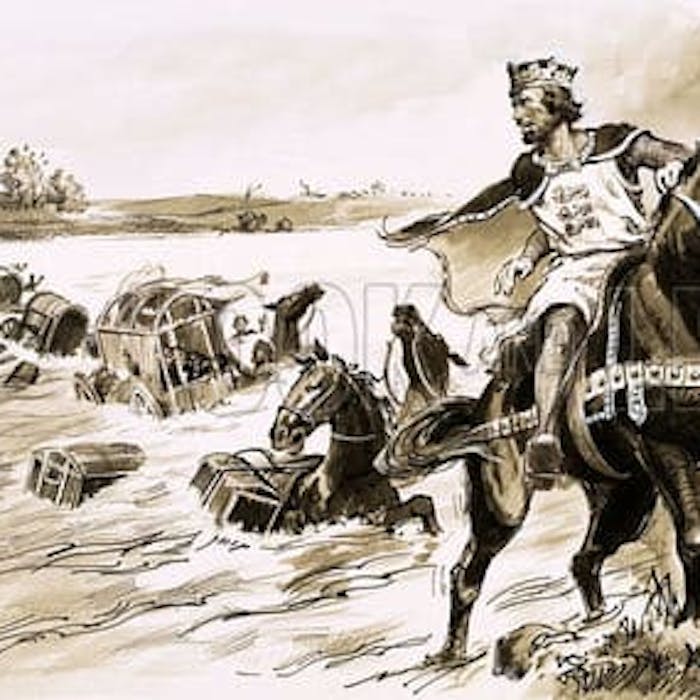
Lost treasure - did King John really lose the crown jewels in the Wash?
Medieval monarch King John was a hapless and hopeless king. He lost his lands in France, he lost the support of his barons, and he was even excommunicated from the church. And it does seem to be true that he lost some of the royal treasure in the Wash.
In 1216, King John travelled from Spalding, Lincolnshire, to Bishop's Lynn, Norfolk, but suddenly decided to return to head off an invasion from the Scottish king. While he took the longer route by way of Wisbech, in his haste he sent his slow-moving baggage train, comprising horse-drawn wagons, via a shortcut along a causeway that crossed the treacherous mud of a river mouth leading into the Wash. For some reason or failure of timing, the wagons moved too slowly to escape the incoming tide and many were lost.
Contemporary chronicler Roger of Wendover wrote “he lost all his carts, wagons, and baggage horses, together with his money, costly vessels, and everything which he had a particular regard for ; for the land opened in the middle of the water and caused whirlpools which sucked in every thing, as well as men and horses, so that no one escaped to tell the king of the misfortune.”
King John was dead of dysentery within days.
No one is sure what treasures King John actually lost on that day - but he had forcibly acquired a lot of monastic treasure in 2015 "for safe-keeping". There was his own regalia and coronation robes and the royal regalia of Empress Maud (John’s Grandmother). They were usually held by the Templars and the Hospitallers, but John seems to have wanted them with him, in the upheaval following the Magna Carta in 1215, as he reclaimed both sets.
Having gathered all these treasures together - it does seem likely that John would have kept them with him as he struggled to regain his throne (occupied at that time by a French interloper - Yes, King John had lost his throne as well!).
Also, none of the treasures carefully recorded and numbered in 1215 were ever mentioned again.
The area around the Wash has changed greatly since those days and any buried treasure is as likely to be deep beneath fields or marshes as it is to be buried under the sea bed. And no one has found it yet ...
Image: Will Nickless.
Further reading
Links to external websites are not maintained by Bite Sized Britain. They are provided to give users access to additional information. Bite Sized Britain is not responsible for the content of these external websites.
